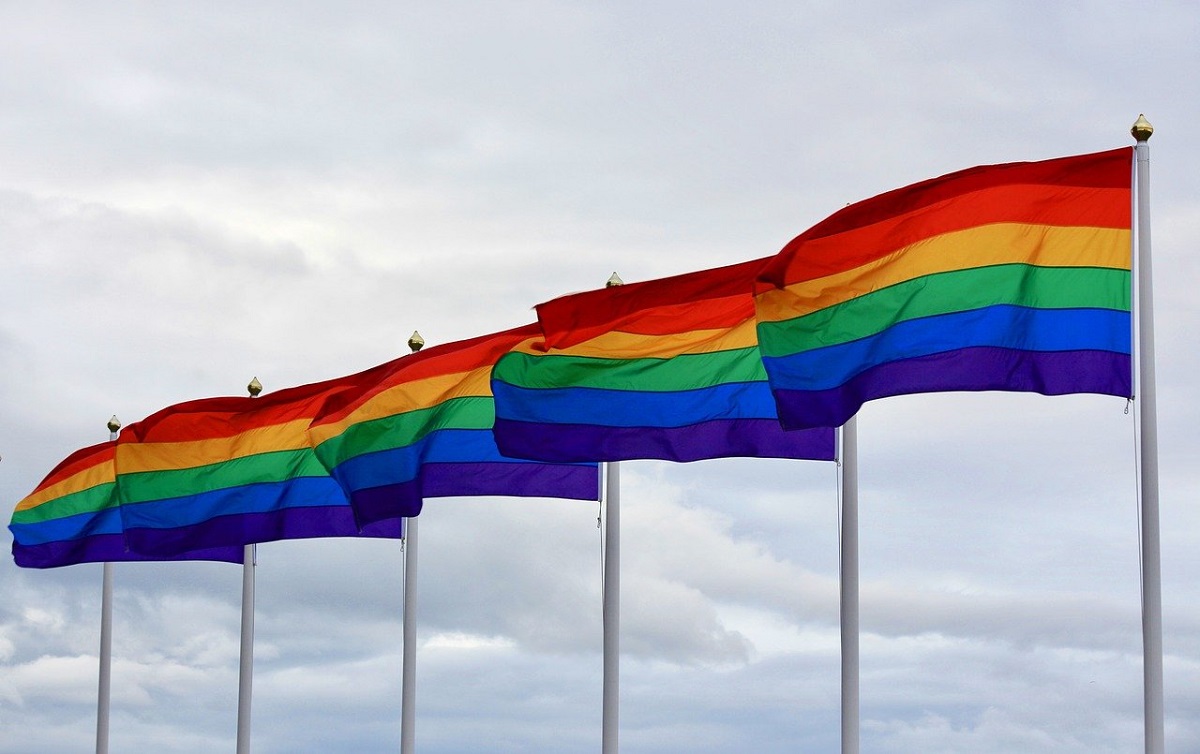The House passed sweeping law on Thursday to ban discrimination against people based on their sexual orientation and gender identity, and to bring the LGBTQ community a huge victory – while exposing a terrible disagreement within the GOP.
The House Adopts Equality Law : Legal Protection for LGBTQ Americans
The House of Representatives has passed sweeping law outlawing discrimination based on gender, sexual orientation, and gender identity, though it has an uncertain future in the Senate.
The legislation changes civil rights laws, including the landmark Civil Rights Act of 1964, which banned discrimination based on race, color, religion, and national origin, to include protections based on gender, sexual orientation, and gender identity.
It would also prohibit such discrimination in public places, in traffic, and government-funded programs.
The Equal Opportunities Act, designed to amend the Civil Rights Act of 1964 to protect LGBTQ people, was unanimously supported by House Democrats en route to approval in a vote between 224 and 206.
Three Republicans crossed the party lines to join the Democrats in approving the bill. Less than half of the GOP votes the measure received last time.
The legislature passed the law in a vote between 224 and 206, mostly on the party line.
Three Republicans voted with all Democrats.
The House passed a similar version of the bill in May 2019 but died in the then Republican-controlled Senate. Eight Republicans voted in 2019, even though no Republicans co-sponsored this year’s version of the legislation.
However, some Republicans fear that this week’s controversial antics of Rep. Marjorie Taylor Greene (R-Ga.), Rep. Marie Newman (D-Ill.) For molesting her transgender daughter, have stepped on her attempts to be sensitive to communicate why they are against the LGBTQ rights bill.
Most Republicans say they oppose the measure because of its perceived violation of religious freedom, not on grounds of discrimination against LGBTQ people – a fine line Greene effectively got rid of.
Rep. Mark Takano, D-Calif., The first openly gay colored person in Congress, told reporters when he voted Thursday that he would “think of all LGBTQ activists who have marched, protested and started a movement to protect the lives of LGBTQ people and expand our rights. ”
Senator Tammy Baldwin, D-Wisc., Who was the first openly gay member of Congress when she was first elected to the House of Representatives in 1999 and the first openly gay member of the Senate when she was elected in 2012, told reporters as an attorney who she had seen firsthand how the law fell short in protecting her discriminatory clients.
The Greene-Newman incident resurrected a sensitive issue for the GOP, which has wrestled over its stance on gay marriage and battled allegations that it does not include or protect LGBTQ rights. Just last year, former MP Denver Riggleman (R-Va.) Was censored by his state party for having a same-sex marriage. He lost his main race.
Rep. Dan Crenshaw (R-Texas), who welcomes a transgender person on his podcast next week to discuss military issues, said it was “damn important” for the GOP to be clear about why they oppose this particular one Pronounce bill. “There is definitely a wrong way to communicate everything,” he added.
For the Democrats, Greene’s comments on Newman’s daughter only underscore the importance of passing the LGBTQ rights bill, which the Senate is unlikely to pass in its current form. Proponents of the LGBTQ community argue that the kind of federal protection the bill would enshrine is long overdue, especially since more than half of the U.S. states do not provide explicit legal protection for individuals who are discriminated against based on their sexuality or gender identity. He said it was important to pass the laws as many Americans believe the protection is already in law. The idea that Americans could be denied service in a restaurant simply because of their sexual orientation “does not fit our basic understanding of fairness and equality,” he said.
Although many states have passed anti-discrimination laws, proponents like the human rights campaign argue that today’s “patchwork” of interstate laws makes LGBTQ Americans vulnerable to discrimination.
Responding to the religious objections, Cicilline said that “religious organizations would still enjoy the rights they have under current law”.
The conservative Heritage Foundation, which speaks out against the law, says it could jeopardize religious freedom, give transgender athletes an unfair advantage, and undermine constitutional freedoms.
“When you tell people in most of the states in this country you can either be kicked out of your home, fired from your job, or refused service in a restaurant for being gay or in the LGBTQ community, people may think not to be true, “said Rep. David Cicilline (DR.I.), the co-sponsor of the law, POLITICO in an interview.
Senate Majority Leader Chuck Schumer has promised that the legislation will get a vote “at exactly the right time”. But it takes 10 Republican Senate votes to hit back a GOP filibuster. It’s not going to be easy: Most Republicans, as well as some religious groups, warn that the law on LGBTQ rights would undermine the protection of religious freedom, leading to lengthy and costly court battles.
The law is one of President Joe Biden’s top priorities in legislation he plans to pass during his first 100 days in office.
The bill faces an uncertain future in the Senate, which is a 50 percent split between Republicans and Democratic caucus members, with Vice President Kamala Harris playing a key role. It would take at least 10 Republicans to vote with all of the Democrats to move the ball past a major procedural barrier called a filibuster.
Senator Chuck Schumer, DN.Y., said he would use his powers as majority leader to bring the bill to the ground and Republicans dare to vote against it, despite refusing to say when he will pass the Senate legislation would bring up.




